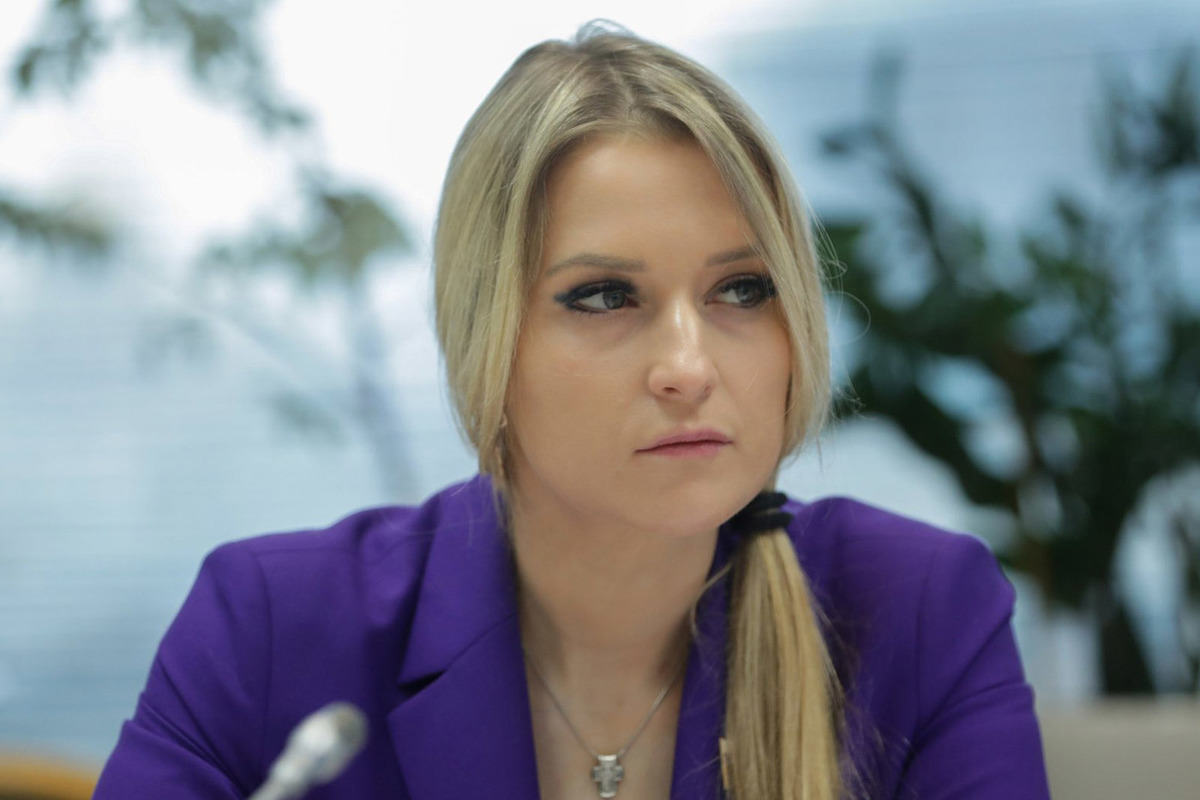The idea of a credit amnesty crashed on a financial issue
[ad_1]

The first deputy chairman of the State Duma Committee on Education, Yana Lantratova, proposed introducing a credit amnesty for families with children in Russia. “By May 1, 2023, the debt of Russians to banks reached 30.22 trillion rubles, while the level of debt load increased from 35% to 41% compared to the beginning of the year,” the deputy says in his appeal to Prime Minister Mishustin.
The MP noted that the situation with the debt burden is aggravated by rising prices and requires increased measures of state support. According to the author of the appeal, it is necessary to establish the right to a one-time write-off of debts in the event of a drop in income for reasons beyond the control of people, “for example, during the liquidation of the organization in which the borrower worked.”
Well, everything is logical. The state, represented by a high-ranking official, raised a topic to which it, the state, is most directly related. After all, it is its direct duty as a socially oriented institution to take care of citizens, to prevent a situation where millions of debtors face a vicious dilemma: feed the children or pay the bank? At the same time, there are a number of moments in the plot with the deputy’s initiative, which obviously doom this good intention to failure.
In March 2022, at the height of the crisis, the Just Russia party (of which Lantratova is a member) proposed a “large-scale loan amnesty for low-income citizens.” No decisions were made on it, respectively, with a high degree of probability, history will repeat itself now.
What is a “credit amnesty”? This is a complete and unconditional write-off of the principal and interest on the loan. The measure means that banks not only will not be able to return their money, they will not pay off depositors and debit card holders, and will be on the verge of bankruptcy.
The conclusion suggests itself: credit institutions absolutely do not need this “banquet” at their expense. Moreover, at the end of last year, net profit in the banking sector amounted to 203 billion rubles – a mere minuscule, especially in comparison with the result of 2021 – 2.4 trillion. The problem is that the concept of “credit amnesty” is not fixed in any legal or by-laws. In fact, the measure is abstract in nature, since there is not a single example, not a single precedent for its implementation in practice in Russia. From a technical point of view, the out-of-court bankruptcy procedure, which appeared in 2020, is closest to it. But no more than 5% of debtors fall under the terms of an out-of-court procedure.
According to rough estimates, there are about 24 million families with children in the country. In general, 9 million Russians allow missing payments on loans, it is difficult to say which part of them belong to households with children. But even if we assume that no more than half (4.5 million), then taking into account the current average consumer loan amount of 330,000 rubles (mortgage and car loans will be left out of the equation), we get an amount of about 1.5 trillion rubles. Who will take care of its write-off? Banks that are not doing well with liquidity? Or, perhaps, the task will be solved at the expense of the federal budget, with its deficit of 2.81 trillion rubles in January-July? The questions are rhetorical.
There are only one or two world examples of credit amnesty. For example, in 2012, in the UAE, six thousand lucky people canceled debts to banks in the amount of about $250 million, and in 2019, the same mercy (for $100 million) was shown in relation to three thousand people. In Kazakhstan, in 2019, almost half a million citizens fell under a debt amnesty, whose debts to banks were repaid in the range of 300,000 tenge. The values are incomparable with Russian ones.
Meanwhile, in this story there is another aspect related to social justice. “I think it is unfair to write off debts only to those who are unable to pay. If you do an amnesty, then everyone who has loans, – the Internet user is indignant. – I also give my entire pension in full while I pay, but this does not mean that I am able to pay. For some, 3 million is not money, but for someone a loan of 300-500 thousand is an unbearable burden. The amnesty should apply to everyone who is in debt.”
Today’s mass lending is an echo of the “fat” zero, when a sharp increase in income made the population believe in their own economic strength. Cars, apartments, travel – all this I wanted here and now. For all this, mass and often thoughtlessly loans were taken – in the hope that the growth of the economy and personal income would last indefinitely and it would not be difficult to repay them … But those sweet times are long gone, along with super profits from hydrocarbon prices. The total debt burden of millions of Russians remains, moreover, it has multiplied in volume. Unlike real incomes, which have only been falling for the last ten years. Russia has been and remains the territory of an unstoppable credit freemen, and it does not seem that this is hindering the state. So, neither families with children, nor other categories of borrowers should count on any amnesty for debts. We paid, we pay and we will pay …
[ad_2]
Source link






